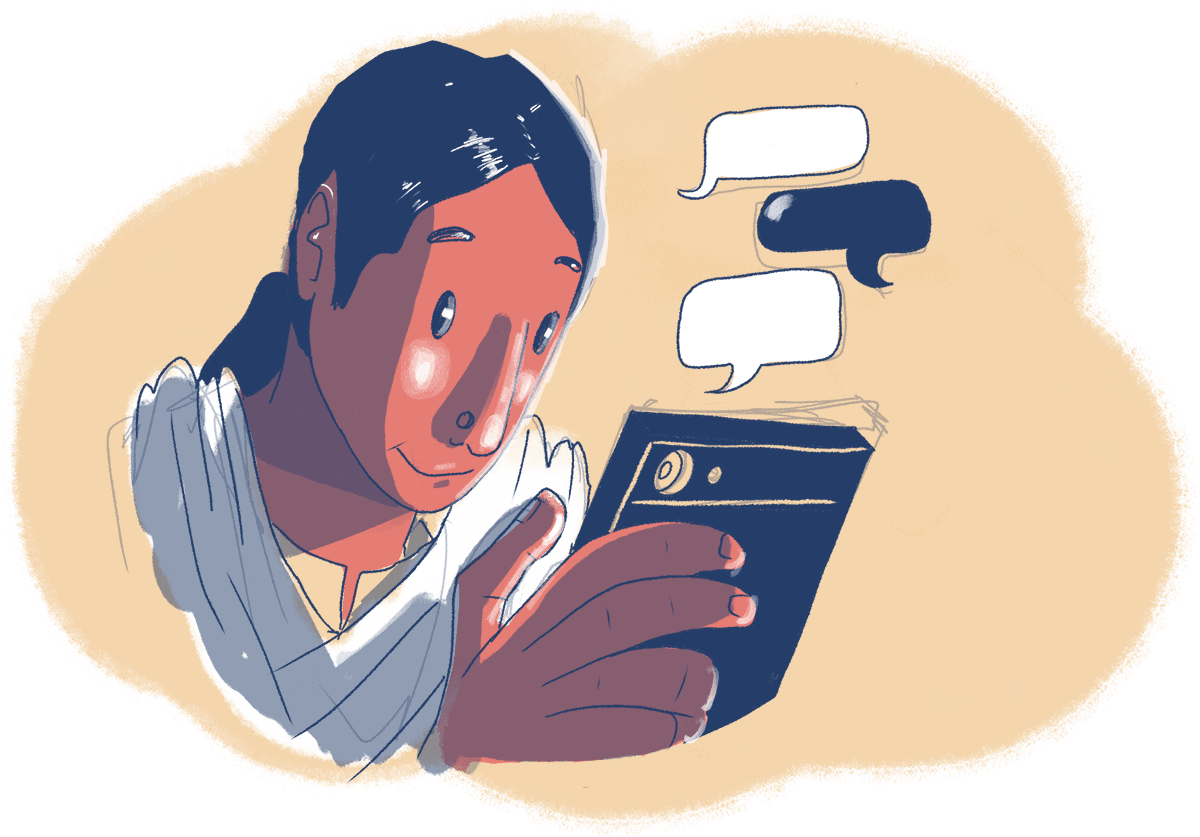
An Accidental Mix of Lockdown, Mental Health and Memes
Farnaz Fatima, 25 | ![]() West Bengal, India
West Bengal, India
Last year was a difficult time for many of us. It took a toll on us, not just in tangible terms of financial loss or being confined in a physical space, but also in terms of the impact it had on our emotional and mental well-being. The thought of gloom and despair that the pandemic brought upon us was overwhelming to say the least. Yet, we were often forced to find a sliver of hope which gave us strength to survive in these tough times. For me this hope came from one of the most ubiquitous things on the internet. It was those funny images that we encounter on our social media feeds called memes.
Before I tell you more about that, let me give a brief background of how the lockdown began for me. I am a university student, and like all others of my kind, I was looking forward to a normal semester ahead of me. This hope for normalcy was also partly influenced by the events preceding the lockdown, during which university campuses – supposedly safe spaces for students – were attacked under various pretexts. Students were forced to directly come to terms with the political landscape that we currently inhabit. Thus, a need for normalcy, however superficial and fleeting, was what I hoped for.
Needless to say, 2020 was anything but ‘normal’. It forced us to think of the things that we take for granted. It forced us to introspect the value and meaning of life, and things like happiness, stability, and everyday activities that we usually go through without a second thought. I was staying alone in my university hostel as all my friends had left the campus. In the initial few days, I was going through the routine of studying, binge-watching shows and sanitizing. However, as time went by, I began feeling the emotions that I had buried deep in my heart. The anxiety of the present, the chaos of the past, and the uncertainty of the future all played out together in my mind. Before I could realize, I was spending my days just watching the same show on loop without feeling any sense of joy or sadness; I was just numb.
It was in this state that I found an unlikely companion in memes. In between posts about Dalgona Coffee and Instagram Bingo, I found these to be the most relatable content online. Memes talking about feelings and emotions, who would have thought that? Even if you are not aware of what memes are, chances are that you have encountered them in your life at some point. Memes have the capacity to condense intricate arguments into a simple image. For me, these became a device of communication that was easy to relate to because of the precision with which they captured what I felt.
For me, memes made talking about extremely twisted emotions, like depression, uncertainty, confusion and numbness, relatively easier. Not least because a mask of humour made these issues more palatable. I didn’t have to describe my hopelessness to someone, I could ease my way into the conversation by just sending them a meme from the popular animated show, ‘Bojack Horseman’. I could condense my vulnerability in a 100kb JPEG file and feel better. Further, I could articulate my emotions in a way that didn’t trigger them and start a vicious cycle of overthinking. According to research conducted by Sheffield Hallam University, [1] people suffering from depression respond more positively to dark humor because it helps them visualize their own experience, and it limits long interactions that people with mental health issues can find cumbersome. The memes that I engaged with said a lot about me, and also for me, without actually making me feel burdened by the idea of talking about it.
Memes are not just funny content but also ideas, and this duplication of ideas made me realize that no matter how lonely or unheard I felt, there was a community of people like me. Reaching out to a community was the only way to move forward. With memes, reaching out to the community becomes easier as one does not have to start the conversation from a point of vulnerability, and instead I could keep it light. This is especially crucial as people with depression or anxiety can find regular interactions difficult, which can further lead to isolation. [2] This constant exchange of memes helped me a lot to stay in touch with people and not fall into a hopeless abyss of isolation. It gave me a sense of perseverance that I did not feel was possible in moments of doubt.
For me, conversations about mental health were extremely difficult to initiate. Many of us would like to think of ourselves as strong and self-dependent. The stigma around mental health is such that it is extremely difficult to accept vulnerability and ask for help, and I was no different. It was due to this that I found memes to be an easy way out. So, the next time you are not feeling your best, my recommendation is to open your social media and go through these relatable memes. Chances are that you will not just be laughing at the memes, but also laughing along with someone else looking at the same meme, and feel like you are part of a community trying to find a way out of your darkness.
___________
[1] See Akram, Umair., Drabble, Jennifer, Cau, Glhenda. et al. Exploratory study on the role of emotion regulation in perceived valence, humour, and beneficial use of depressive internet memes in depression. Science Reports Vol 10, 899 (2020). https://doi.org/10.1038/s41598-020-57953-4
Also Available in report form at https://www.shu.ac.uk/research/in-action/projects/depressive-memes
[2] See Introduction of Wu, Tingting et al. “The impact of anxiety on social decision-making: behavioral and electrodermal findings.” Social neuroscience vol. 8, Issue 1 (2013): pp11-21. doi:10.1080/17470919.2012.694372
Available at https://www.ncbi.nlm.nih.gov/pmc/articles/PMC3632664/